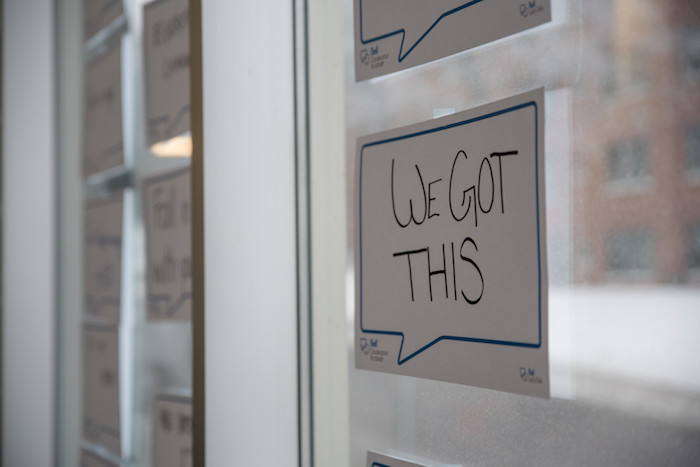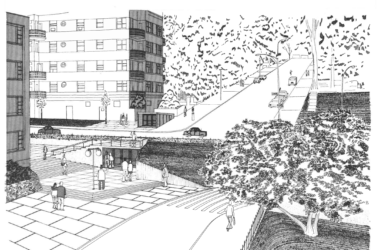Between Jan. 28 and Feb. 1, the Students’ Society of McGill University (SSMU) hosted Mental Health Awareness Week (MHAW). Events promoting mental wellness, self-advocacy, and collective well-being took place throughout the week on and around campus. Organizers encouraged attendees to be more understanding and aware of issues relating to mental health through their workshops.
In the midst of juggling homework and extracurriculars, getting adequate sleep, and making time for friends and family, mental health is often a student’s last priority. Consequently, event organizers felt that it was important to engage in conversations about mental health and encourage students to prioritize their mental health. According to SSMU Mental Health Commissioner Bee Khaleeli, U3 Arts, MHAW organizers hoped to do more than solely encourage discussions about mental illness.
“We also really value offering concrete steps for students to take,” Khaleeli said. “This is especially true for those who are often left out of the conversation of mental health, neurodivergent students and students with disabilities in particular, but also queer, racialized, and otherwise-vulnerable students.”
In this mission to empower students with coping mechanisms, MHAW included a workshop on effective studying presented by the Office for Students with Disabilities. The event provided students with strategies on improving time management, balancing a demanding workload, and excelling academically while practicing self-care.
Participants also learned about ways in which they could assist others struggling with mental illness. Licensed psychologist Dr. Mary Alexandria led SafeTALK Suicide Intervention on the evening of Jan. 31. In her presentation, Alexandria talked about some of the signs that someone may exhibit if they are contemplating suicide and offered approaches for offering them support. After attending the workshop, Emily Gittings, U1 Arts, spoke of the importance of taking action if someone shows signs of suicidal ideations.
“Sometimes, I think we worry about being too extreme and just dismiss our concerns when, in reality, it is best to communicate our concerns clearly and be willing to ask if someone is suicidal,” Gittings said. “When offering to help someone who is suicidal, it is not your responsibility to save their life. Instead, it is important to provide [students with] the resources needed in order for this person to save their own life.”
In addition to instructional workshops, campus groups also hosted de-stressing events for overwhelmed students. On Jan. 29, the Peer Support Centre, SSMU, the Art Hive staff, and Student Services teamed up to offer a creative art session. Beyond providing students with a space to paint, the Art Hive staff instructed students on practicing mindfulness, a practice which encourages honing in on the peace of the moment. The event staff hoped that students would engage positively with mindfulness and integrate it into their daily lives.
While raising awareness is important, it does not necessarily resolve all of the challenges those suffering from mental illness face. The student groups and professionals behind MHAW worked to extend mental health education beyond awareness by providing students with opportunities to actively improve their mental health. Through a combination of casual events like yoga and heavy discussions on matters such as suicide, students learned a variety of ways to practice self-care.
“I hope folks who attended […] programming can wrap up the week feeling like they have the tools necessary for self-advocacy and community support,” Khaleeli wrote in a message to The McGill Tribune. “I think it’s really easy to fall into talking about awareness without offering concrete next steps and avenues for growth and change, and we wanted to empower people in this regard.”









